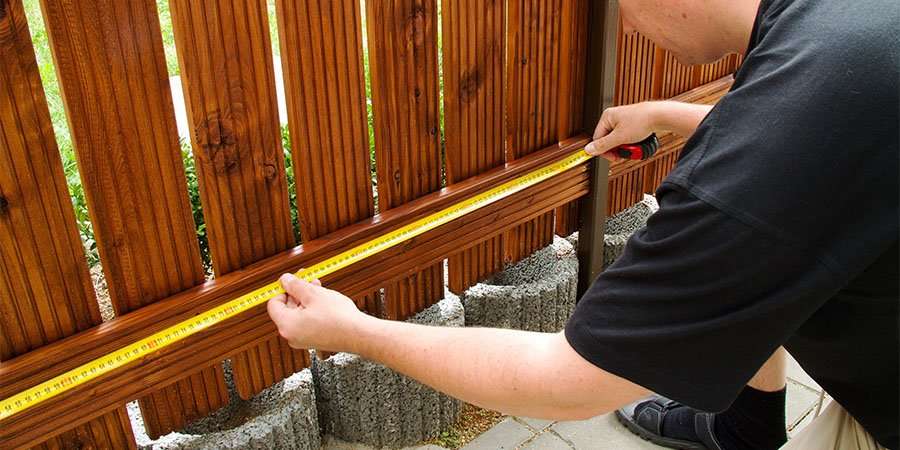All Categories
Featured

When it concerns selecting the most effective fencing product for toughness, functioned iron stands out as one of one of the most reliable and long-lasting options available. Known for its stamina, visual allure, and capability to stand up to various climate conditions, wrought iron is a prominent option for both business and household properties. Just how does it compare to other fence materials in terms of durability and performance? Let's take a closer consider functioned iron fencing and how it compares to options like wood, plastic, and light weight aluminum.
Stamina and Long Life of Wrought Iron Fence. Unlike lots of various other secure fencing options, functioned iron can withstand harsh ecological conditions, including severe warmth, heavy rain, and also strong winds. Because it is a steel, functioned iron is not vulnerable to the wear and tear that wood fencings often experience, such as decomposing, bending, or insect problems.
Resilience: Wrought iron fencings are exceptionally difficult and can endure effects and other forms of physical anxiety that may harm various other products. When appropriately kept, they can last for 50 years or even more, making them an investment that will certainly offer long-term value.
Wrought Iron vs. Timber Fencing. Wood fencings, while typical and visually pleasing, commonly need even more upkeep and have a shorter lifespan compared to wrought iron. Wood is prone to rot, termites, and weathering over time, every one of which can jeopardize its architectural honesty. On top of that, timber fences may require to be replaced or repaired every 10 to 20 years, relying on the climate and the sort of wood made use of.
Maintenance: While timber fencings require to be on a regular basis treated with sealers, spots, or paints to maintain their appearance and durability, wrought iron fences usually call for much less maintenance. They may require occasional cleansing or painting to prevent corrosion, particularly in seaside or moist locations, yet they will not experience the same types of degradation as timber.
Longevity: While a well-kept wood fence might last 20 to thirty years, functioned iron can surpass that lifespan by several decades, making it a much more sturdy option over time.
Wrought Iron vs. Vinyl Secure fencing. Plastic fencing has actually ended up being a popular choice to wood due to its reduced upkeep and resistance to the aspects. Unlike timber, vinyl does not rot or warp, and it does not require to be repainted or treated. Nonetheless, vinyl can end up being brittle gradually, particularly in regions with rough winters or severe UV direct exposure. It may break or fracture under stress, such as from a serious tornado or a heavy influence.
Toughness: While plastic is relatively resilient and resistant to rot and fading, it still can not match the long-term stamina and sturdiness of wrought iron. A vinyl fencing could last around 20 to three decades, depending upon ecological variables, yet it lacks the structural honesty that functioned iron provides.
Maintenance: Plastic needs marginal maintenance compared to timber, but it can still discolor gradually, particularly in areas with intense sun direct exposure. Wrought iron might need periodic corrosion avoidance therapies but usually needs less treatments than plastic.
Wrought Iron vs. Light Weight Aluminum Fence. Light weight aluminum is an additional steel choice to functioned iron, and while it shares some of the durability qualities of functioned iron, it is generally much less solid and tough. Light weight aluminum is a lot more lightweight and resistant to rust and corrosion, making it a popular choice for low-maintenance fencing. It's not as strong as wrought iron and may be a lot more prone to nicking or flexing under pressure.

Durability: Wrought iron is considerably more powerful and more resilient than light weight aluminum. While aluminum fencings can last for several decades, they may not hold up too in high-impact or high-traffic areas. On the other hand, wrought iron is a lot more resistant to physical damage and can much better stand up to pressure and force.
Maintenance: Both functioned iron and light weight aluminum fences call for some maintenance, primarily to stop corrosion. Light weight aluminum is much less likely to rust than functioned iron, making it an extra low-maintenance choice in areas with high humidity or coastal salt direct exposure.
Last Thoughts: Wrought Iron's Longevity Benefit. Wrought iron attracts attention as one of one of the most durable fencing materials offered, exceeding timber, plastic, and aluminum in regards to strength, longevity, and total efficiency. While it does call for periodic maintenance, specifically to avoid corrosion, its capability to withstand severe climate problems, physical anxiety, and the examination of time makes it an outstanding investment for home owners and businesses looking for a lasting, safe and secure fencing solution.
For those that focus on stamina and durability most of all else, functioned iron is an unbeatable choice. Whether you're protecting a household building, improving the look of your backyard, or offering security for a business website, wrought iron fence will give years of resilience and aesthetic appeal that few various other products can match.
Latest Posts
Explore Limited-Time Auto Repair Deals in Chicago at Montclare Auto Repair
Published May 26, 25
1 min read
Find Brake Repair & More: Comprehensive Repair Options from Montclare Auto Repair
Published May 26, 25
1 min read
Learn How to Reduce Expenses on Car Maintenance with Montclare Auto Repair’s Special Deals
Published May 25, 25
1 min read
More
Latest Posts
Explore Limited-Time Auto Repair Deals in Chicago at Montclare Auto Repair
Published May 26, 25
1 min read
Find Brake Repair & More: Comprehensive Repair Options from Montclare Auto Repair
Published May 26, 25
1 min read
Learn How to Reduce Expenses on Car Maintenance with Montclare Auto Repair’s Special Deals
Published May 25, 25
1 min read